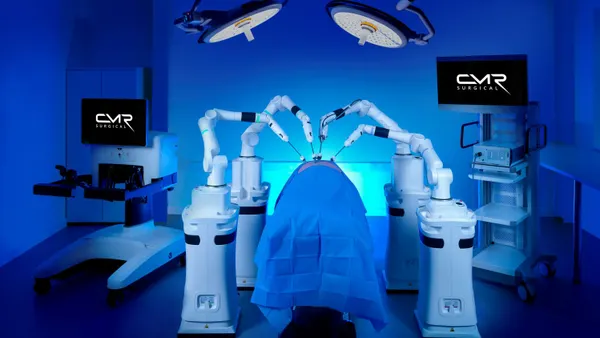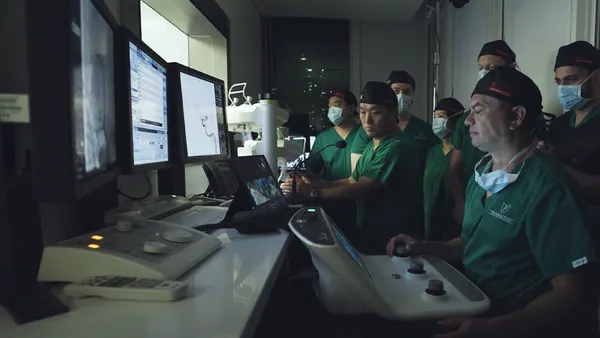Dive Brief:
-
The Trump administration is working on a new payment approach for treating the roughly 37 million Americans with kidney disease, according to CMS Administrator Seema Verma and HHS Secretary Alex Azar. HHS is also looking at ways to make more kidneys available for transplant, including developing wearable and implantable artificial kidneys.
-
Dialysis services providers' stocks plummeted premarket Monday as the news first surfaced, with DaVita and Fresenius Medical Care's tickers falling 4% and 3%, respectively.
- Government stress on home dialysis would likely help CVS Health, which plans to offer home dialysis, and startups like Somatus and Cricket Health, according to Leerink.
Dive Insight:
Industry has been braced for a government kidney care shakeup for a while now, with the head of the Center for Medicare and Medicaid Innovation saying recently the administration has been "spending a lot of time looking at" the area. Kidney disease was the ninth leading cause of death in the U.S. in 2016, fueled by the growing prevalence of hypertension and diabetes.
Potential government initiatives could run the gamut from a new CMMI payment model or going to Congress for a legislative fix, Adam Boehler told reporters in February, but the overall strategy would be to streamline the treatment of kidney disease and try to halt it before it reaches end-stage renal disease, or ESRD.
"What you really want is the prevention of ESRD from developing," Boehler said. "If it develops, you want [patients to have a] transplant wherever possible; if not, [treatment] at home wherever possible. It should be a last resort that people go to a dialysis center." CMMI is currently looking at models for stage 4, stage 5 and end-stage renal disease.
Azar doubled down on that rhetoric in a Monday speech to the sixth annual Kidney Patient Summit, saying HHS will look at preventing, detecting and slowing kidney disease progression; providing more treatment options for patients with kidney failure; and delivering more kidneys for transplants, including developing wearable and implantable artificial kidneys.
HHS is currently in the middle of a 15-month innovation challenge spurring researchers to redesign dialysis delivery with $2.6 million up for grabs. Submissions for the first phase of the challenge, called KidneyX, were due last week. HHS received 165 proposals.
Beyond the devastating patient mortality, kidney disease and its treatment is extraordinarily expensive, even in the current high-cost healthcare environment. In 2016, Medicare spent $79 billion covering people with the disease. Another $34 billion went towards patients with end stage renal disease, summing up to a whopping $113 billion — more than one in five Medicare dollars, Azar noted.
CMS is mulling a trial payment design to improve care in the early stages of kidney disease, increase access to transplants and prioritize home dialysis over pricier and inconvenient clinic-based treatment, Verma told Reuters on Monday.
The government doesn't mean to demonize dialysis centers, Boehler told reporters at HIMSS last month, blaming faulty incentives already in place. But any big changes to the industry could have major repercussions on the bottom lines of dialysis providers, such as 233-clinic American Renal Associates, 2,400-clinic Fresenius and 2,700-clinic DaVita.
Fresenius, however, would likely weather any payment changes better than its competitors, given its recent takeover of NxStage Medical, which focuses on home dialysis. Fresenius issued a statement in support of HHS' new direction in kidney care, saying it "looks forward to continued partnership" with the government.
Other potential winners include United Health Group, Cigna, Anthem and Humana, which are all in solid positions to join the push to home dialysis. Of outside players, though, CVS is "best positioned to leverage its vast retail footprint and access to medical and pharmacy claims data to capitalize on the move," according to Leerink.














